Regular vs premium gas has been a pretty polarizing topic in the Toyota 4runner community, especially among 4.7 V8 owners. With the price of gas continuing to rise, your choice can greatly affect your wallet. So should you be running premium gas in your 4runner?
The best gas to run in your 4runner is whatever your owner’s manual recommends. If your specific model calls for premium, that will be the best performing fuel for it. Most 4runners can safely run 87 octane though – they just won’t make as much power or be as fuel-efficient.

Is it safe to run 87 octane fuel in your 4runner?
The biggest fear that many people have is that running a lower octane gas than what is recommended will cause your engine to blow up. For some vehicles, that might be the case. But we’re talking specifically about 4runners here.
If your 4runner notices any signs of knocking or pinging from lower octane gas, it’ll back off the timing in order to keep itself safe. Doing so will result in less horsepower and torque. Your performance might suffer but it’ll run just fine.
My personal V8 4runner calls for 91 octane in the owner’s manual. I’ve run 87 octane since I bought it roughly 5 years ago. It’s been lifted with heavy 285/70/17 tires for nearly all of that time too, so the engine is working a bit harder than normal.
On top of that, I recently towed a camper trailer over 10,000 km across Canada to the Rocky Mountains – all on 87 octane (2,220 liters, to be exact!). I’ve never experienced any negative symptoms or even a hiccup.
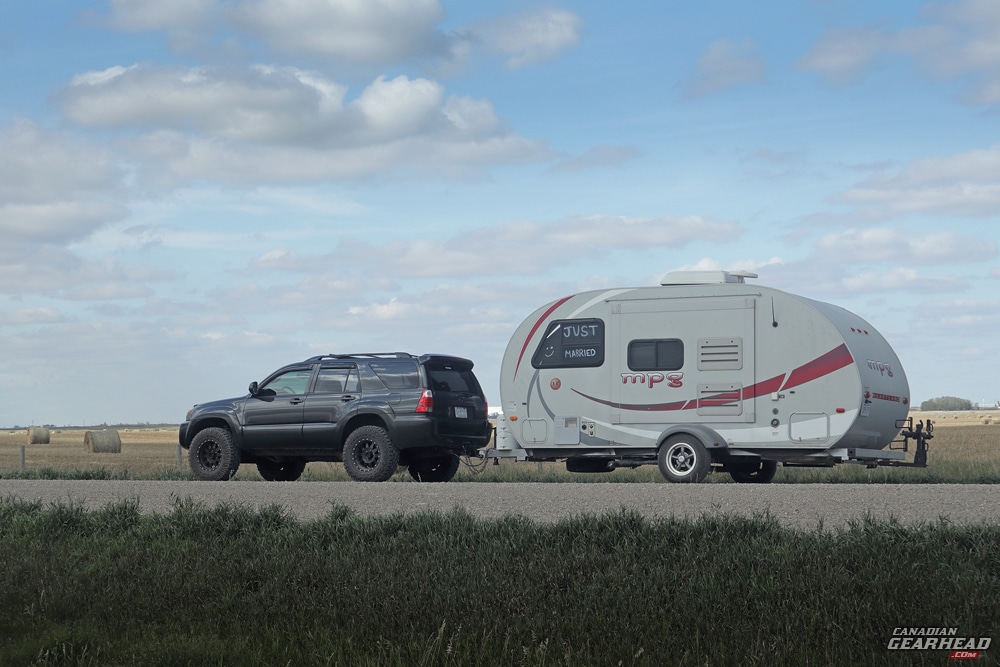
One of the reasons I’ve felt safe running regular gas in my 4runner is because other people with the exact same model (in other regions) have stated their manual recommends 87 octane. If this was a strict rule, I’d expect Toyota to be more consistent in their requirements.
Apparently, I’m not alone. I did a poll on both Instagram and my YouTube channel to see what fuel other 4runner owners are running. Surprisingly, 85% of 4runner owners on both platforms are running regular gas:
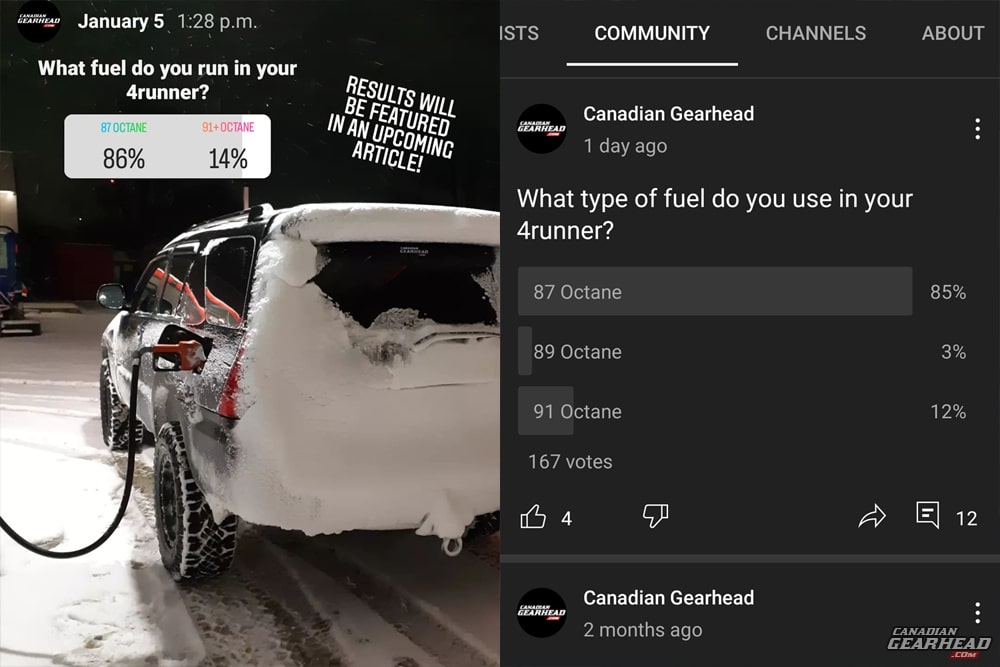
Do you actually get better MPG with premium gas?
This has been the biggest argument that I’ve seen from people that prefer to use 91 octane. They claim that your 4runner will run more efficiently on higher octane gas, making up for the higher price at the pump. Is this true?
Being the curious guy that I am, I decided to run my own test. Now I’m certainly not the EPA and this test wasn’t done on the same day, the same track, and in the same weather like they would have done.
I simply filled my tank with 91 octane, went about my regular daily driving (mix of city and highway) then did the same with a tank of 87 octane. I tried my best to duplicate the same type of driving but of course, it wasn’t perfect.
So these numbers are meant to be used as a general idea and not a precise comparison. Personally, I feel like the test was pretty accurate.
| 87 Octane | 91 Octane | |
|---|---|---|
| Distance traveled | 350 Kilometers | 301 Kilometers |
| Fuel used | 60.6 Liters | 48.83 Liters |
| Fuel economy | 13.5 MPG (17.4 L/100km) | 14.5 MPG (16.2 L/100km) |
What were the results? My 4.7L V8 4runner (with a lift, bigger tires, and 230,000 kms) got 13.5 MPG on 87 octane. A little less than my normal 15 MPG, but I blame the winter gas for that.
| Regular (87 Octane) | Mid Grade (89 Octane) | Premium (91 Octane) | |
|---|---|---|---|
| Price Per Liter | $1.36.3 | $1.51.3 | $1.61.3 |
Switching to 91 octane indeed resulted in better fuel economy – 14.5 MPG. That’s exactly 1 MPG better than the regular fuel! I did find that impressive, but with the big price difference between 87 octane and 91 octane, I’m not convinced that it’ll actually save much money in the end.
Will premium gas give you more power?
This is another topic that has been debated many times. Some people believe that premium gas will turn their Hyundai Elantra into a race car. It will not. But it can potentially give you more power than running 87 octane will.
No, it will not create more horsepower. But remember, running 87 octane causes the ECU to pull timing in order to keep the engine safe, thus reducing horsepower. So 91 octane will give you the full amount of power that’s already available.

So it’s not giving you additional power – it’s allowing you to keep the power that would be lost when running regular fuel.
I’m sure the placebo effect is a contributing factor – but during my test, I found my 4runner felt more lively when running 91 octane. Normally, it has a minor hesitation in the midrange of the power band (even with the Doug Thorley headers) but with the premium fuel, it pulled strong and consistently from idle to redline.
Logic points toward the ECU pulling timing in that spot of the rev range due to the lower octane fuel. Again, this isn’t adding power but when comparing 87 and 91 octane, you will have more power when running the premium stuff.
Now, stepping up to a higher octane than what your 4runner recommends will not give you any advantages (other than it might be faster due to the weight reduction of your wallet!). Seriously, you’re just wasting your money at that point. It might even cause your 4runner to lose performance.
Higher octane fuel burns colder and is needed for high compression, supercharged, or turbocharged engines. This fuel will burn colder and have LESS energy when used in an engine that’s tuned for 87 octane.
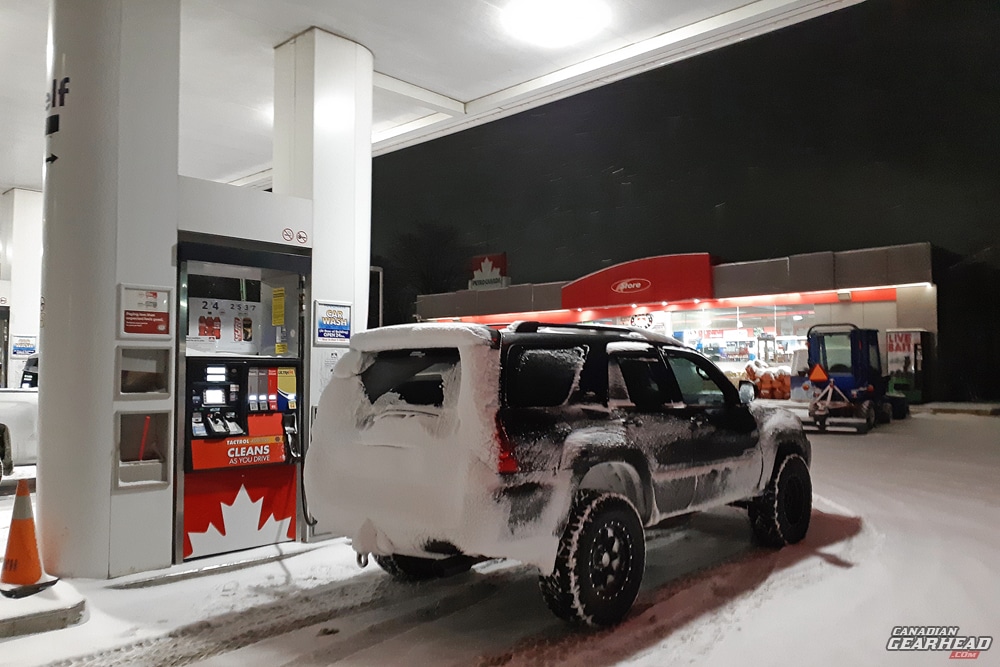
Switching back and forth between regular and premium gas
You might be undecided, or feel that premium fuel is helpful for certain types of driving – is it safe to switch between fuels? There’s no reason to believe that you can’t switch back and forth.
In fact, many 4runner owners will run regular fuel for daily driving and switch to premium when towing (for the full power available) or on road trips (for the additional MPG). So feel free to switch back and forth if you wish.
Final word
If you’ve been wondering what type of fuel to put in your 4runner, hopefully this has helped to give you an understanding of what’s important and what isn’t.
If your owner’s manual says to run premium fuel, go ahead and stick with that. If it tells you to run regular fuel, just know that filling your tank with 94 octane won’t give you any extra power, and might even cause a loss in performance.
What really matters is that you run high quality fuel from a trusted gas station. A sketchy looking non-franchise station out in the middle of nowhere might not have the best gas and that can cause all kinds of troubles with your 4runner.
It’s good to stick with a favorite station somewhere near you that is busy enough to have to refill their tanks often. The longer the fuel sits in the holding tank, the more octane and quality it’ll lose. Busy, brand name stations are your best bet.

Tim is the creator of Canadian Gearhead. His experience with auto detailing and working for Toyota shows through all of the articles posted here. He runs the Canadian Gearhead site and YouTube channel full-time now and currently owns a 2007 4runner, 2006 Tacoma, and 1991 MR2. Read more about Tim:

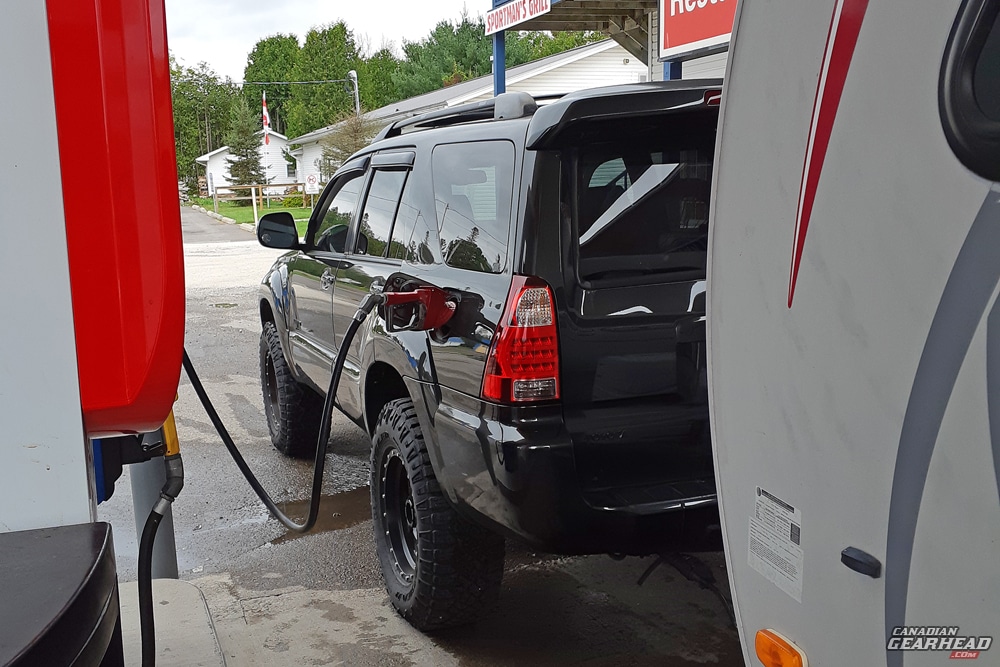

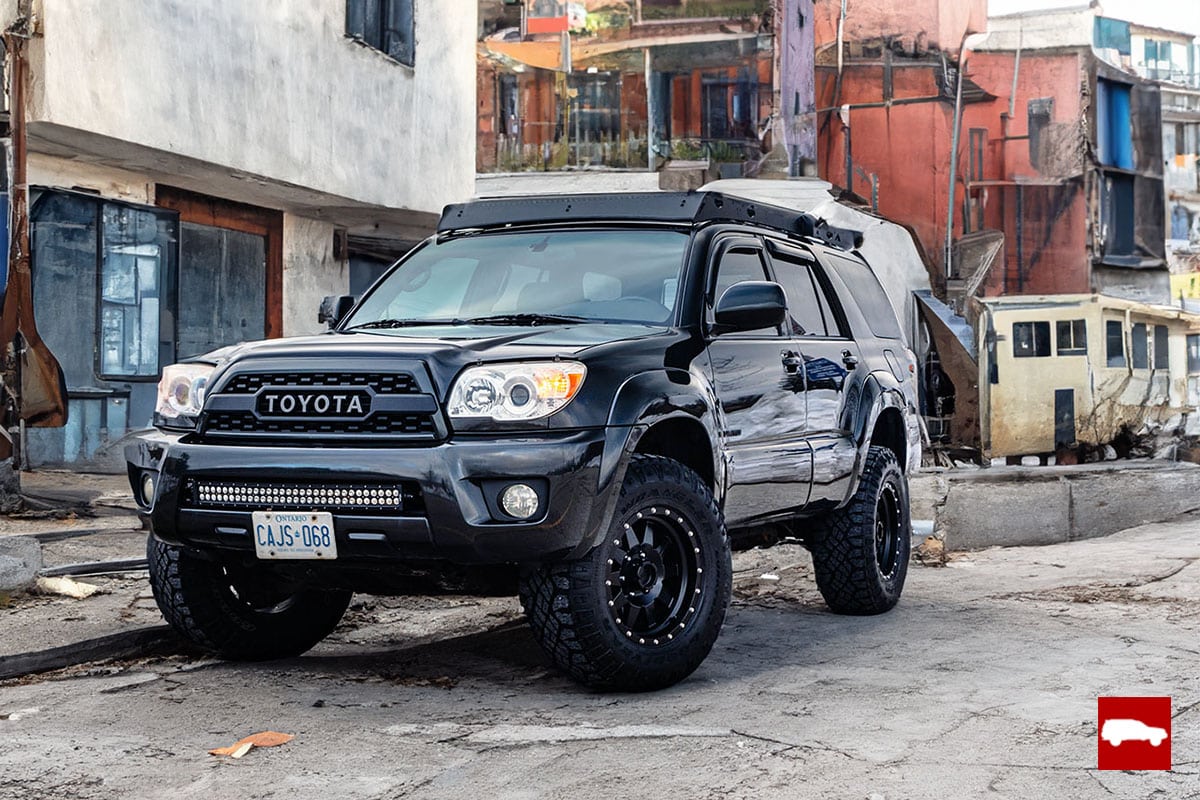
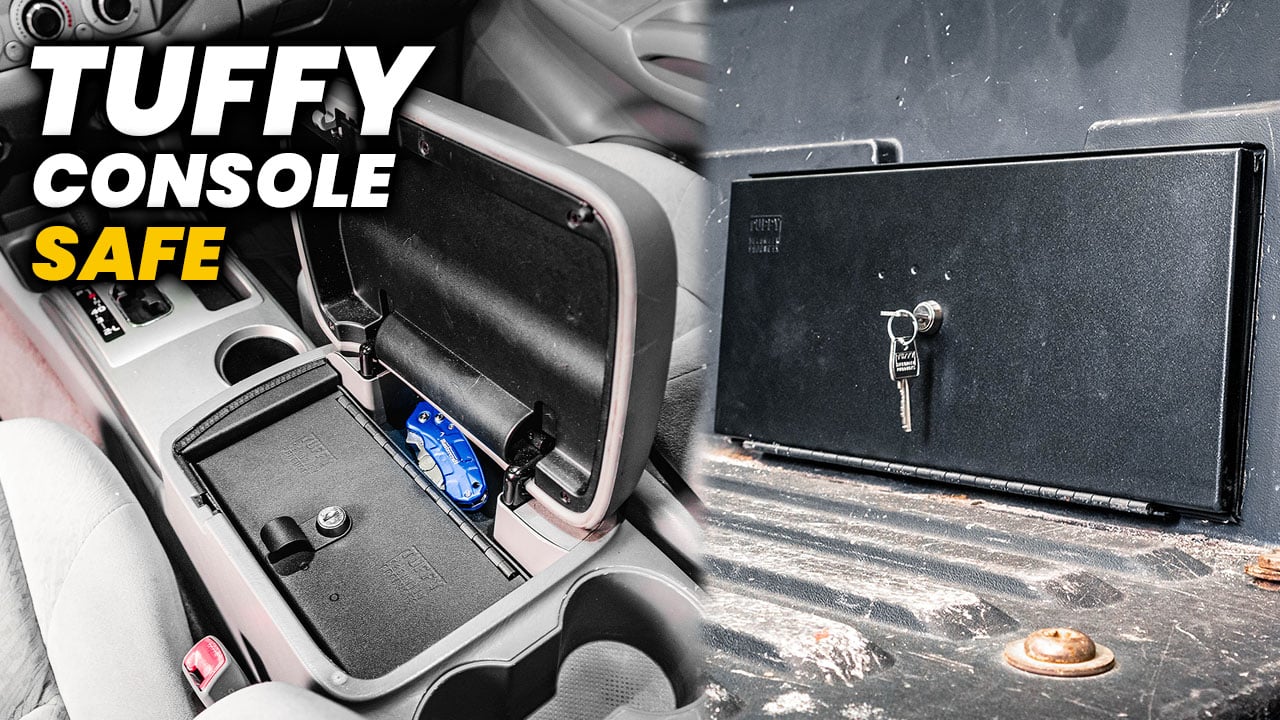
Leave a Reply